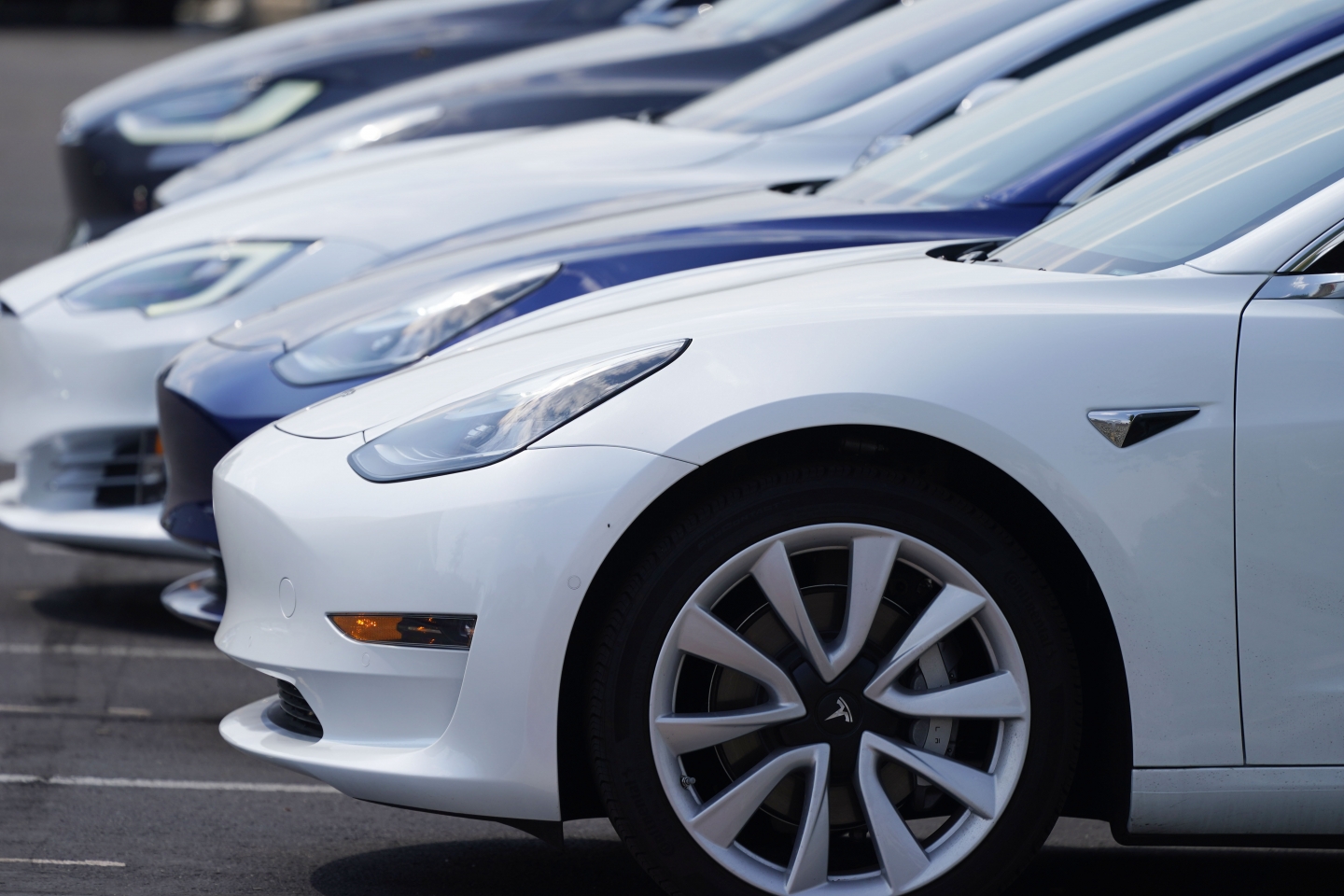California's Exclusive EV Mandate Under Fire From Automakers

Table of Contents
Automaker Concerns Regarding California's EV Mandate
Automakers are voicing significant concerns about the feasibility and economic impact of California's stringent EV mandate. These concerns encompass several key areas:
Production Capacity and Infrastructure Limitations
The rapid timeline mandated by California presents a considerable challenge for automakers. Current EV production capabilities, charging infrastructure, and the availability of essential raw materials for battery production simply aren't keeping pace.
- Insufficient battery supply chains: The demand for lithium, cobalt, and other battery materials far exceeds current supply, leading to price volatility and production bottlenecks. Securing a stable and ethical supply chain is a major hurdle.
- Lack of charging stations, especially in rural areas: Widespread EV adoption requires a robust and geographically diverse charging network. The current infrastructure, particularly in less populated areas, is inadequate to support a mass transition to EVs. This issue creates "range anxiety," a significant barrier to consumer adoption.
- High upfront costs of EV production impacting profitability: The initial investment required to retool manufacturing facilities and develop new EV models is substantial, putting a strain on profitability, especially for smaller automakers.
- Concerns about the reliability of the electric grid to handle increased demand: A significant increase in EV adoption will place a considerable strain on the electricity grid, raising concerns about potential power outages and the need for grid modernization.
Market Demand and Consumer Adoption
Automakers argue that pushing a rapid EV transition before consumer demand and supporting infrastructure are fully developed risks market instability and could harm the entire auto industry.
- Insufficient consumer education and awareness: Many consumers remain unaware of the benefits of EVs or hesitant due to misconceptions about their cost, range, and charging times.
- Range anxiety and charging time limitations: Concerns about driving range and the time required for charging remain significant barriers to consumer adoption. Improvements in battery technology and charging infrastructure are crucial to addressing this issue.
- Higher initial purchase price of EVs compared to gasoline-powered vehicles: The higher upfront cost of EVs compared to gasoline cars remains a significant deterrent for many potential buyers, especially those on tighter budgets. Government incentives are needed to bridge this gap.
- Concerns about the longevity and resale value of EVs: Uncertainty around the long-term durability and resale value of EVs also contributes to consumer hesitancy. More data and experience are needed to alleviate these concerns.
Economic Impact and Job Losses
The rapid shift towards EVs raises valid concerns about potential job losses in the traditional automotive sector.
- Potential for plant closures in states not prioritizing EV production: States that haven't invested heavily in EV infrastructure and manufacturing could experience significant job losses as the industry shifts.
- Need for retraining programs for workers displaced from traditional automotive jobs: Investing in retraining programs for workers whose skills are no longer needed in the transition to EVs is essential to mitigating the economic impact.
- Economic challenges for smaller automotive suppliers: Smaller suppliers who specialize in components for gasoline-powered vehicles could face significant economic challenges as the demand for their products declines.
California's Response and Justification of the EV Mandate
California defends its aggressive EV mandate by emphasizing the urgent need to combat climate change and improve public health.
Environmental Benefits and Climate Change Mitigation
The state argues that the transition to EVs is crucial for reducing greenhouse gas emissions and meeting its climate goals.
- Reduction in air pollution and improved public health: EVs produce zero tailpipe emissions, leading to significant improvements in air quality and public health, particularly in urban areas.
- Meeting state and federal emission reduction targets: The mandate is integral to California's broader strategy to meet its ambitious emission reduction targets.
- Leadership role in promoting clean energy technologies: California positions itself as a leader in the global transition to clean energy, fostering innovation and attracting investment in the EV sector.
Economic Opportunities and Innovation
California believes that the EV transition will create new economic opportunities and drive innovation.
- Growth of the EV manufacturing and charging infrastructure industries: The mandate is expected to stimulate significant growth in the EV manufacturing and charging infrastructure sectors, creating numerous jobs.
- Investment in renewable energy sources to power the EV grid: The increased demand for electricity from EVs will drive investment in renewable energy sources, furthering the state's clean energy goals.
- Attraction of green technology companies to California: California's commitment to EVs makes it an attractive location for green technology companies, fostering innovation and economic growth.
Public Health and Air Quality Improvements
The state emphasizes the significant public health benefits associated with cleaner air.
- Reduction in respiratory illnesses and other health problems: Reduced air pollution from vehicles will lead to a significant reduction in respiratory illnesses and other health problems.
- Improved air quality leading to enhanced quality of life: Cleaner air will improve the quality of life for all Californians, especially those in urban areas.
- Benefits for vulnerable populations disproportionately affected by air pollution: The benefits of reduced air pollution will be particularly pronounced for vulnerable populations who are disproportionately affected by air pollution.
Conclusion
The debate surrounding California's EV mandate underscores the complex interaction between environmental objectives, economic realities, and technological progress. While automakers raise valid concerns about production capacity, market preparedness, and economic consequences, California emphasizes the urgent need for climate action and the long-term economic advantages of a transition to electric vehicles. Striking a balance between ambitious environmental targets and responsible economic policies is crucial for the successful implementation of California's EV mandate and the broader nationwide adoption of EVs. To remain informed about the latest developments in this critical area, stay engaged with ongoing news and discussions surrounding California's EV mandate and its implications for the future of transportation.

Featured Posts
-
 Melodifestivalen 2025 Komplett Guide Till Artister Och Startordning I Finalen
May 19, 2025
Melodifestivalen 2025 Komplett Guide Till Artister Och Startordning I Finalen
May 19, 2025 -
 How The Eurovision Voting System Determines The Winner
May 19, 2025
How The Eurovision Voting System Determines The Winner
May 19, 2025 -
 Bardellas Candidacy A Contender For The French Presidency
May 19, 2025
Bardellas Candidacy A Contender For The French Presidency
May 19, 2025 -
 Todays Nyt Connections Answers April 17th Puzzle 676
May 19, 2025
Todays Nyt Connections Answers April 17th Puzzle 676
May 19, 2025 -
 Jennifer Lawrence And Cooke Maroneys Rare Public Appearance After Second Baby News
May 19, 2025
Jennifer Lawrence And Cooke Maroneys Rare Public Appearance After Second Baby News
May 19, 2025
